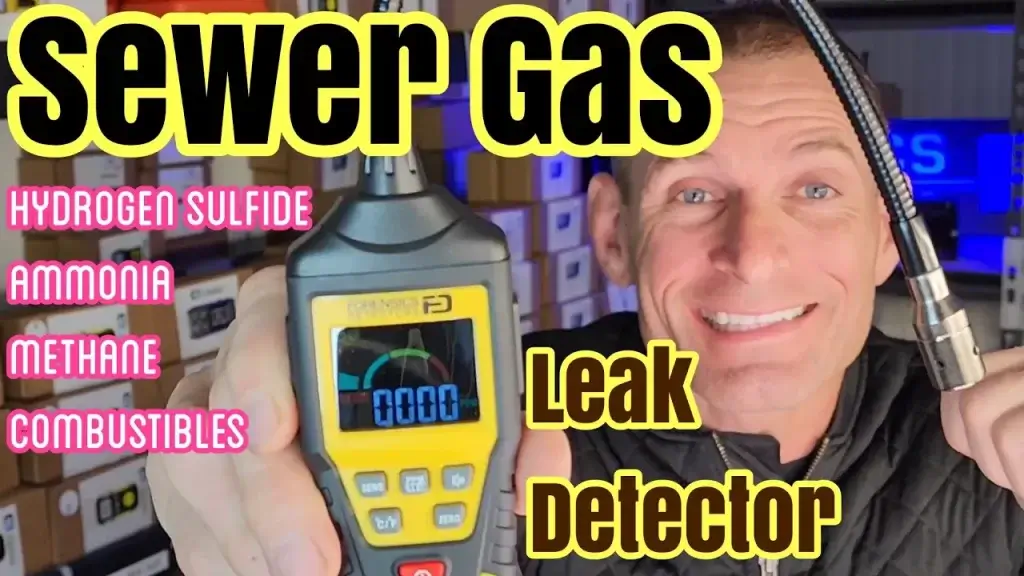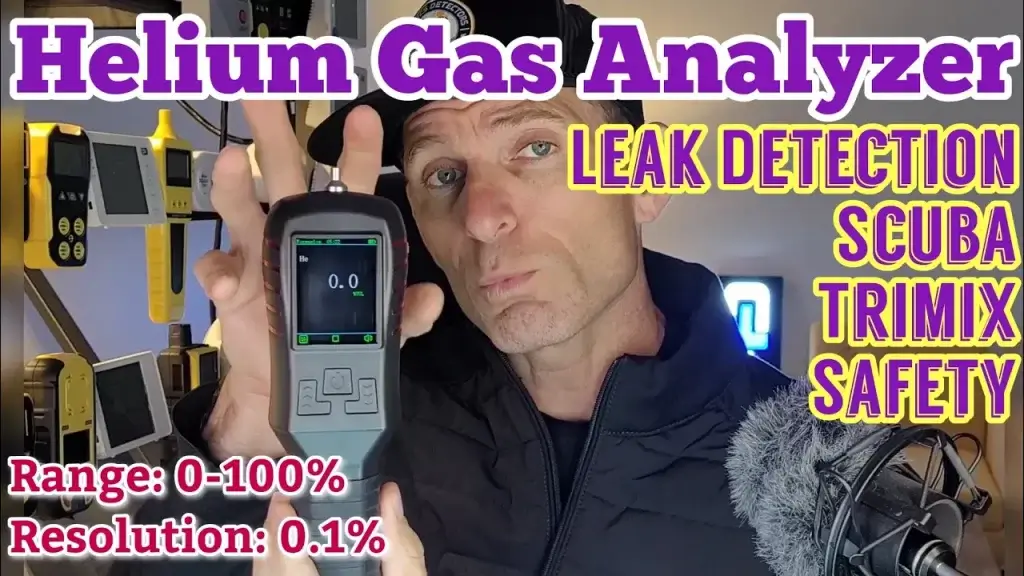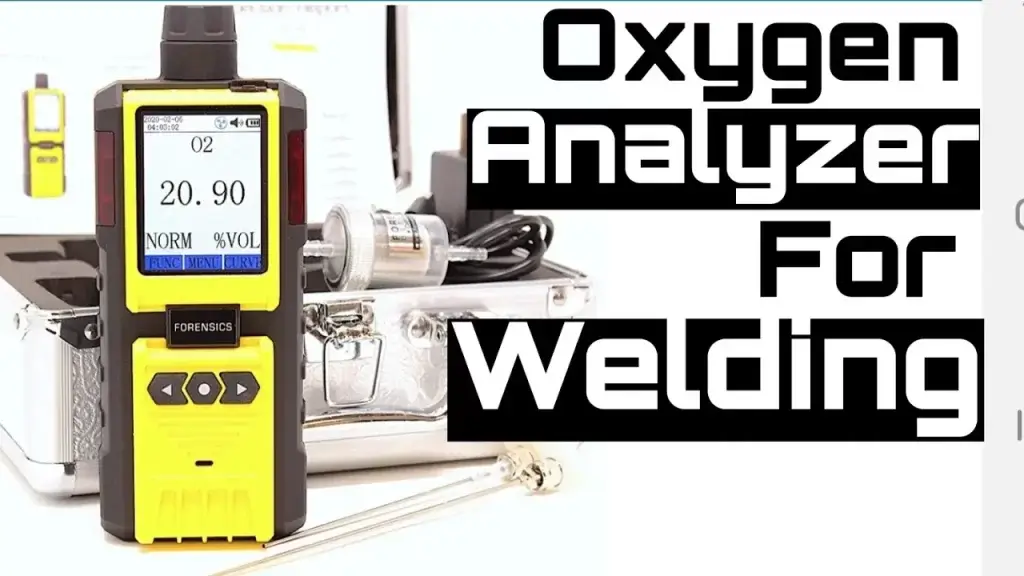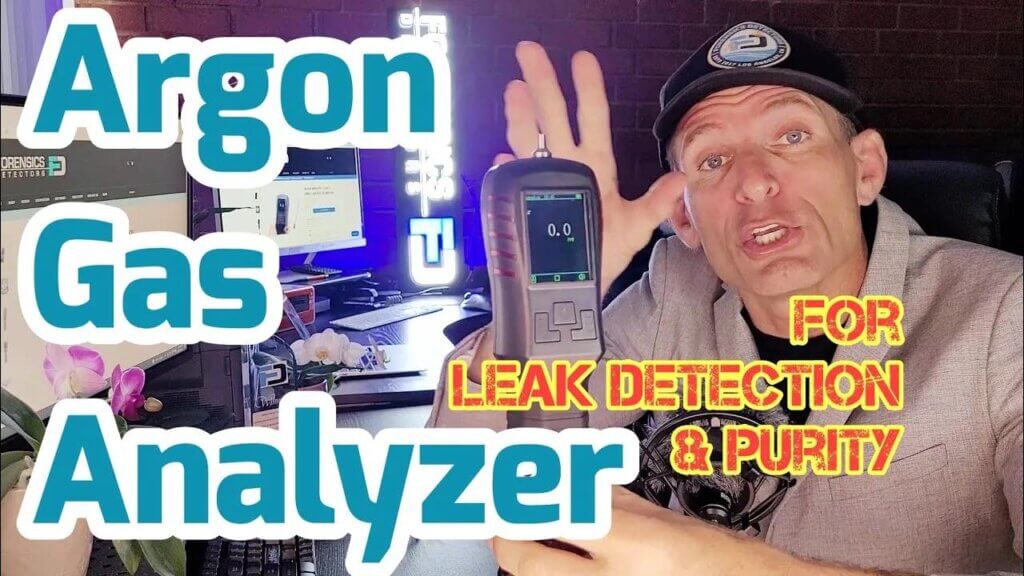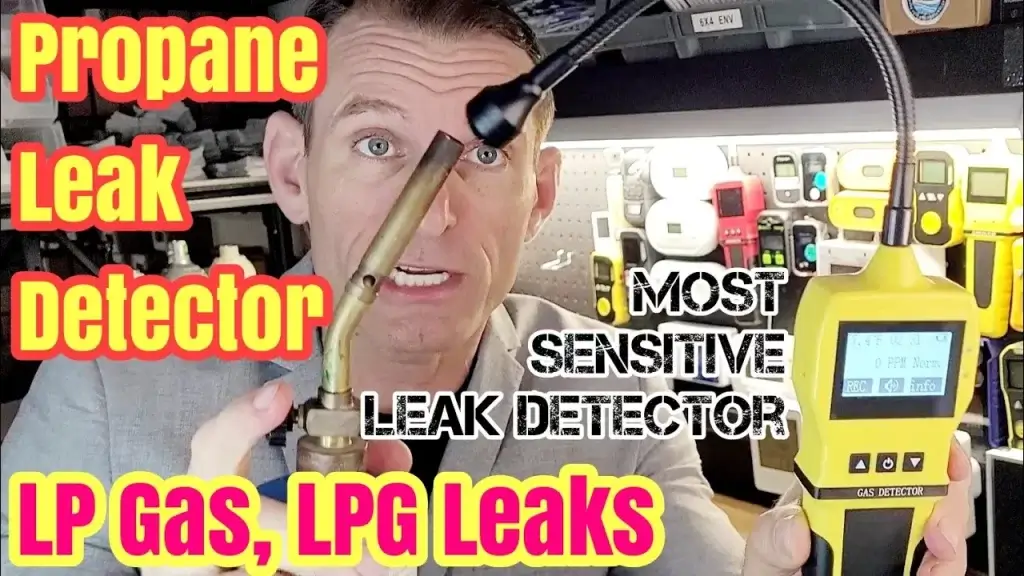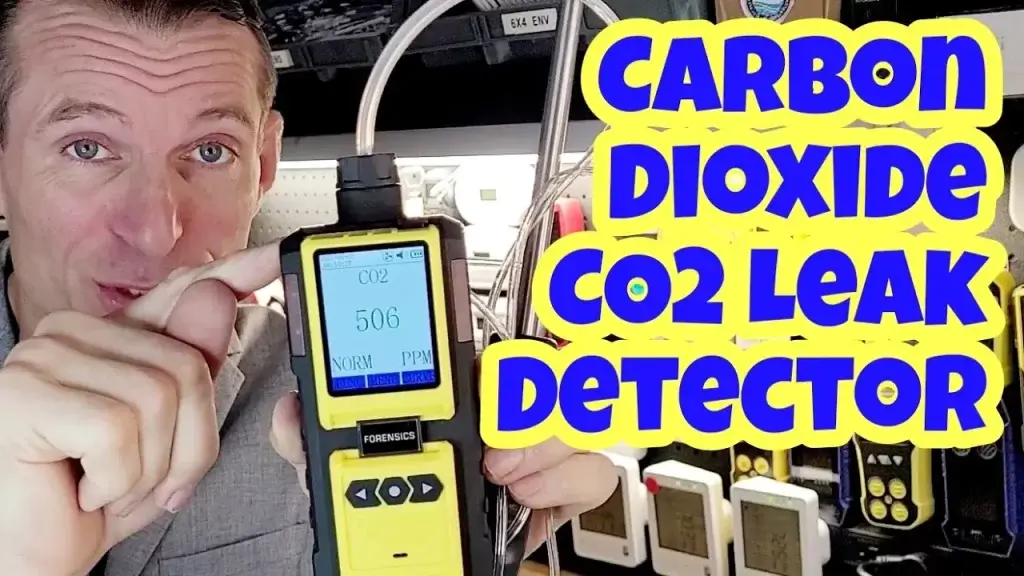Contents
- Best Sewer Gas Leak Detector (Rotten Egg Odor Smell)
- What is a Sewer Gas Leak Detector?
- Best Sewer Gas Detectors?
- Forensics Detectors Sewer Gas Leak Detector?
- What do Customers Say about the FD Sewer Gas Leak Detectors?
- What is a Sewer Gas Leak?
- Why Detect Sewer Gas Leaks?
- Signs of a Sewer Gas Leak?
- Understanding Sewer Gas Leaks
- Basement Sewer Gas Leak
- Are Sewer Gases Dangerous to Health?
- Are Sewer Gases Explosive?
- Can Sewer Gases Create Damage?
- Common Signs of Sewer Gas Leaks
- Sewer Gas Foul Smell
- Slow Draining Fixtures
- Unexplained Wet Patches
- Sarah’s Sewer Gas Incident
- Best Sewer Gas Leak Detector
- 1. Sensitivity – Sewer Gas Leak Detector
- 2. Versatility – Sewer Gas Leak Detector
- 3. Ease of Use – Sewer Gas Leak Detector
- 4. Durability – Sewer Gas Leak Detector
- Tips for Locating Sewer Gas Leaks
- Preventing Sewer Gas Leaks
- Regular Sewer Maintenance
- Proper Sewer Ventilation
- Does Lowes have Sewer Gas Detectors?
- Does Home Depot Have Sewer Gas Detectors?
- Conclusion
- The Author
Best Sewer Gas Leak Detector (Rotten Egg Odor Smell)
Sewer gas leaks can be a major issue in residential and commercial properties, causing unpleasant odors and potential health hazards. Detecting these leaks is crucial for the safety and well-being of occupants. In this article, we will explore the importance of detecting sewer gas leaks, common signs to look out for, the best sewer gas leak detectors available, factors to consider when choosing a detector, and tips for detecting and preventing sewer gas leaks.
| ✅ Pros | ☢️ Cons |
| ✅ Sewer Gas Leak Detectors are sensitive and find leaks to prevent bad egg smells | ☢️ Sewer Gas is dangerous as it can accumulate and become explosive |
| ✅ Sewer Gas Leak Detectors cost between $80 to $300 | ☢️ Sewer Gas is made up of toxic gases such as H2S, NH3 and methane with other combustibles |
| ✅ Sewer Gas Leak Detectors are used for both residential and industrial applications | ☢️ Sewer Gas Leak Detectors do not detector carbon dioxide gas |
| ✅ Sewer Gas Leak Detectors are made with highly sensitive gas sensors and come with a gooseneck design | ☢️ Sewer Gas Leaks occur at drains in pipes where standing water exists and give bacteria and enzymes a chance to breakdown organic matter |
What is a Sewer Gas Leak Detector?
A sewer gas leak detector is a device that is used to detect the presence of sewer gas in a building or other enclosed space. Sewer gas is a mixture of gases that can be produced by the decomposition of organic matter in sewage systems, and it can be dangerous if it accumulates in high concentrations. A sewer gas leak detector typically uses sensors to detect the presence of gases in the air and can alert building occupants or maintenance personnel to take action to address the problem.
Best Sewer Gas Detectors?
The best Sewer Gas Leak Detectors Include:
- Forensics Detectors Sewer Gas Leak Detector
- Klein Tools Combustible Gas Leak Detector
- UEI Gas Leak Detector
- Ridgid Combustible Gas Leak Detector
- PCE Ultrasonic Gas Leak Detector
- Sensit Leak Detector
- Extech Gas Leak Combustible Detector
Forensics Detectors Sewer Gas Leak Detector?
The key features of the Forensics Detectors Sewer Gas Leak Detector include a gooseneck and a sensor for detecting sewer gas, a display that shows the gas concentration level detected, and the ability to read the concentration in parts per million (ppm) scale.
What do Customers Say about the FD Sewer Gas Leak Detectors?
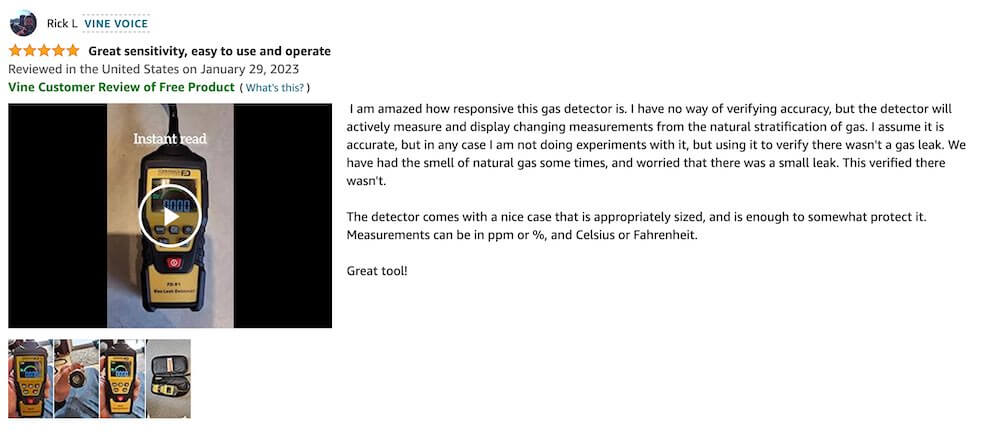

What is a Sewer Gas Leak?
Sewer gas leaks occur when gas, such as methane, hydrogen sulfide, or ammonia, escapes from the sewer system and enters the living or working spaces. These gases are not only foul-smelling but can also be harmful if inhaled in large quantities. Detecting these leaks is essential to prevent health issues and ensure a safe environment.
Why Detect Sewer Gas Leaks?
Detecting sewer gas leaks with a Sewer Gas Leak Detector is crucial for several reasons. Firstly, the foul odor associated with sewer gases can impact the quality of life of occupants. Exposure to these gases can lead to symptoms such as headaches, dizziness, nausea, and respiratory problems. Certain sewer gases are flammable and pose a fire hazard. Detecting and addressing sewer gas leaks promptly is vital for maintaining a safe and healthy environment.
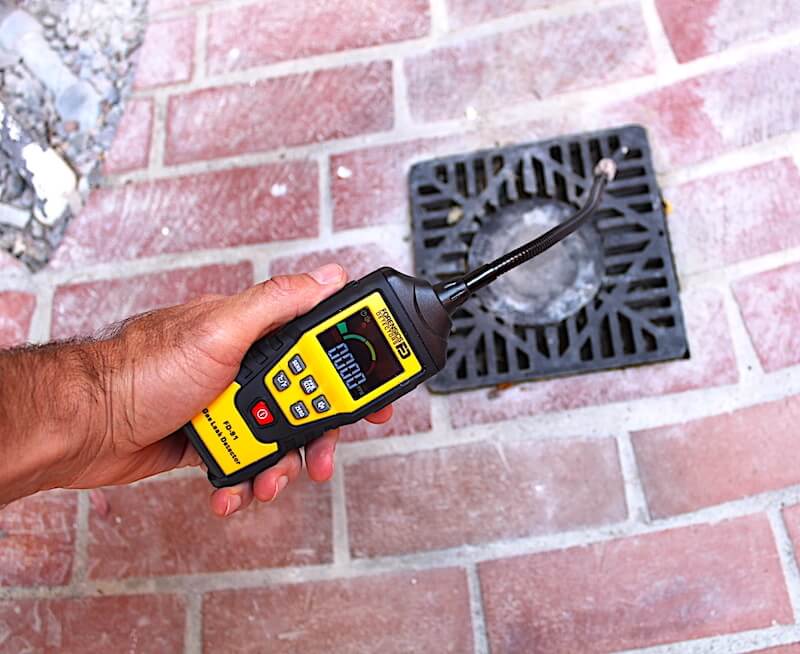
Signs of a Sewer Gas Leak?
- Foul Smell: The distinctive “rotten egg” odor is a strong indicator of sewer gas leaks.
- Slow Draining Fixtures: If sinks, toilets, or drains are slow to empty, it may indicate a blockage or gas leak.
- Unexplained Wet Patches: Wet patches or dampness on walls, floors, or ceilings can be a sign of leaking sewer gas.
- Hissing or Gurgling Sounds: Unusual sounds coming from drains or pipes may signify a gas leak.
Understanding Sewer Gas Leaks
Understanding sewer gas leaks is crucial for homeowners in order to ensure the safety and well-being of their household. Here are some key points before purchasing a Sewer Gas Leak Detector:
- Early Detection: It is vital to be able to identify sewer gas leaks at an early stage to prevent any potential health hazards. Recognizable signs of a sewer gas leak include a noxious odor resembling rotten eggs, hissing sounds near drains or sewer lines, and an increase in flies or insects in the surrounding area.
- Causes: Sewer gas leaks can occur for various reasons, such as cracked or damaged sewer pipes, blocked or clogged drain vents, or malfunctioning sewer traps. Addressing the root cause of the leak is essential to prevent its recurrence.
- Health Risks: Exposure to sewer gas poses health risks to individuals. The primary component of sewer gas, hydrogen sulfide, can lead to symptoms like headaches, nausea, dizziness, and eye irritation. Prolonged exposure to sewer gas can result in more severe health issues.
- Maintenance: Regular maintenance and inspection of the plumbing system play a crucial role in identifying and preventing sewer gas leaks. Ensuring proper ventilation and cleaning of drains and traps can also minimize the likelihood of leaks.
Basement Sewer Gas Leak
To illustrate the importance of understanding sewer gas leaks, let’s consider the case of John, a homeowner who encountered a foul odor in his residence but couldn’t determine its source. Worried about his family’s well-being, John decided to investigate further. Upon consulting a professional plumber, it was discovered that there was a sewer gas leak caused by a cracked sewer pipe beneath John’s basement. The plumber promptly repaired the pipe, eliminating the odor and preventing any potential health hazards for John and his family. This incident emphasizes the significance of comprehending sewer gas leaks and taking immediate action to address them, ultimately ensuring a safe and healthy living environment.
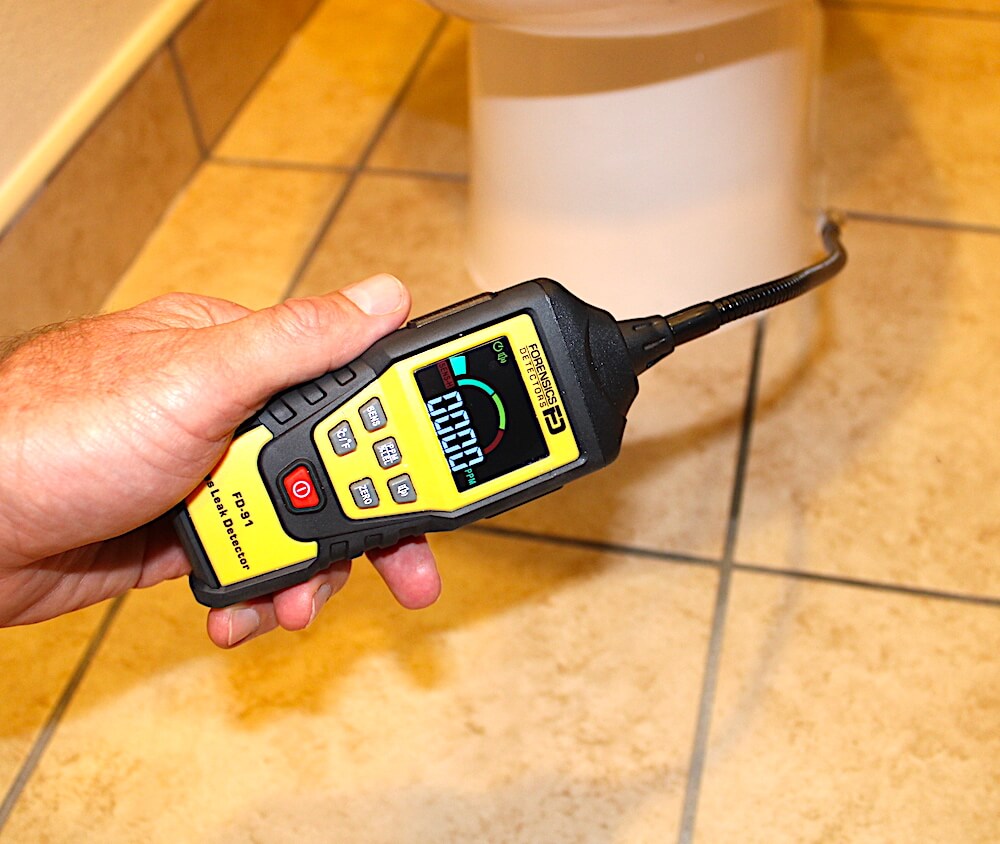
Are Sewer Gases Dangerous to Health?
Health hazards are a major concern when it comes to sewer gas leaks. Sewer gas consists of toxic and malodorous gases like methane, hydrogen sulfide, and ammonia. Inhaling these gases can result in serious respiratory issues, dizziness, nausea, and even unconsciousness. Therefore, it is essential to promptly detect sewer gas leaks to prevent these health risks.
Are Sewer Gases Explosive?
Yes they are.
Sewer gases are fire and explosion risks associated with sewer gas leaks. Methane, a highly flammable gas commonly found in sewer gas, increases the chances of fire and explosions. Even a small spark or open flame can ignite the gas, leading to potentially catastrophic consequences. Detecting sewer gas leaks with a Sewer Gas Leak Detector early on is crucial in order to mitigate these fire and explosion risks effectively.
Can Sewer Gases Create Damage?
Sewer gas leaks can cause structural damage by corroding pipes and compromising their integrity. If left undetected, this corrosion can result in pipe bursts and significant water damage. Repairing such damage can be costly and time-consuming. Regular detection of sewer gas leaks is vital to prevent extensive structural damage and its consequences.
To ensure the timely detection of sewer gas leaks, it is important to invest in reliable sewer gas leak detectors. These detectors should have high sensitivity to detect even low concentrations of gas, versatility to be used in various settings, ease of use for convenience, and durability to withstand long-term use.
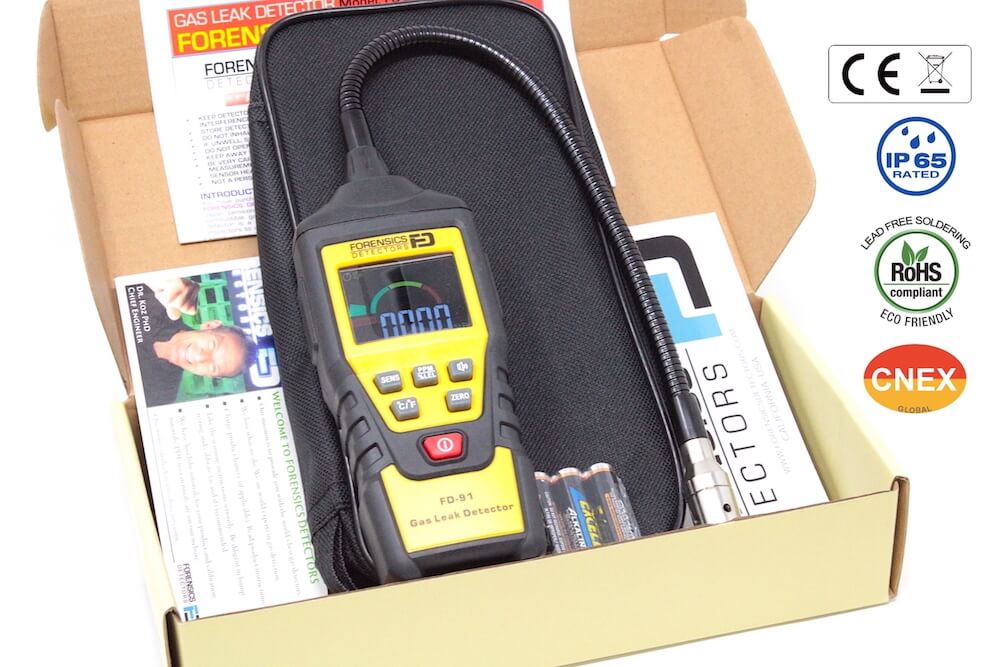
Common Signs of Sewer Gas Leaks
Are you noticing a foul smell, slow-draining fixtures, unexplained wet patches, or hissing and gurgling sounds in your home? These could be common signs of sewer gas leaks. In this section, we’ll explore these telltale indicators in detail, giving you insights into what they mean and how to identify them. Stay tuned to learn how to detect and address sewer gas leaks effectively, ensuring a safe and healthy environment for you and your loved ones.
Sewer Gas Foul Smell
When it comes to identifying a foul smell in your surroundings, especially in your home or place of work, it is important to take immediate action as it could be an indication of a sewer gas leak. Here are some common causes of foul smells:
- Blocked or damaged sewer lines: If there is a blockage or damage in the sewer lines, it can cause the foul smell to seep into your living or working space. This can occur due to tree roots, debris, or aging infrastructure.
- Dry P-traps: P-traps are U-shaped pipes that retain a small amount of water to prevent sewer gases from entering your home. If these traps dry out, it can lead to sewer gas leaks and a foul smell.
- Improperly vented plumbing systems: Proper ventilation is vital to ensure the flow of air through your plumbing system. Without proper venting, sewer gases can build up and cause a foul smell.
- Broken or cracked sewer pipes: If there are cracks or breaks in the sewer pipes, sewer gases can escape and create a foul smell.
If you notice a foul smell, it is important to take action immediately. Here are some suggestions to help you address the issue:
- Contact a professional plumber or maintenance engineer to inspect your plumbing system and identify the source of the foul smell.
- Use a gas leak detector specifically designed to detect sewer gas leaks. These detectors can provide early warnings and help locate the source of the foul odor.
- Ensure proper ventilation in your home or workplace by opening windows or using exhaust fans in areas prone to foul smells.
- Regularly maintain your plumbing system by cleaning drains, checking for leaks, and scheduling professional inspections.
By being proactive and addressing foul smells promptly, you can prevent further damage, potential health hazards, and ensure a clean and odor-free environment.
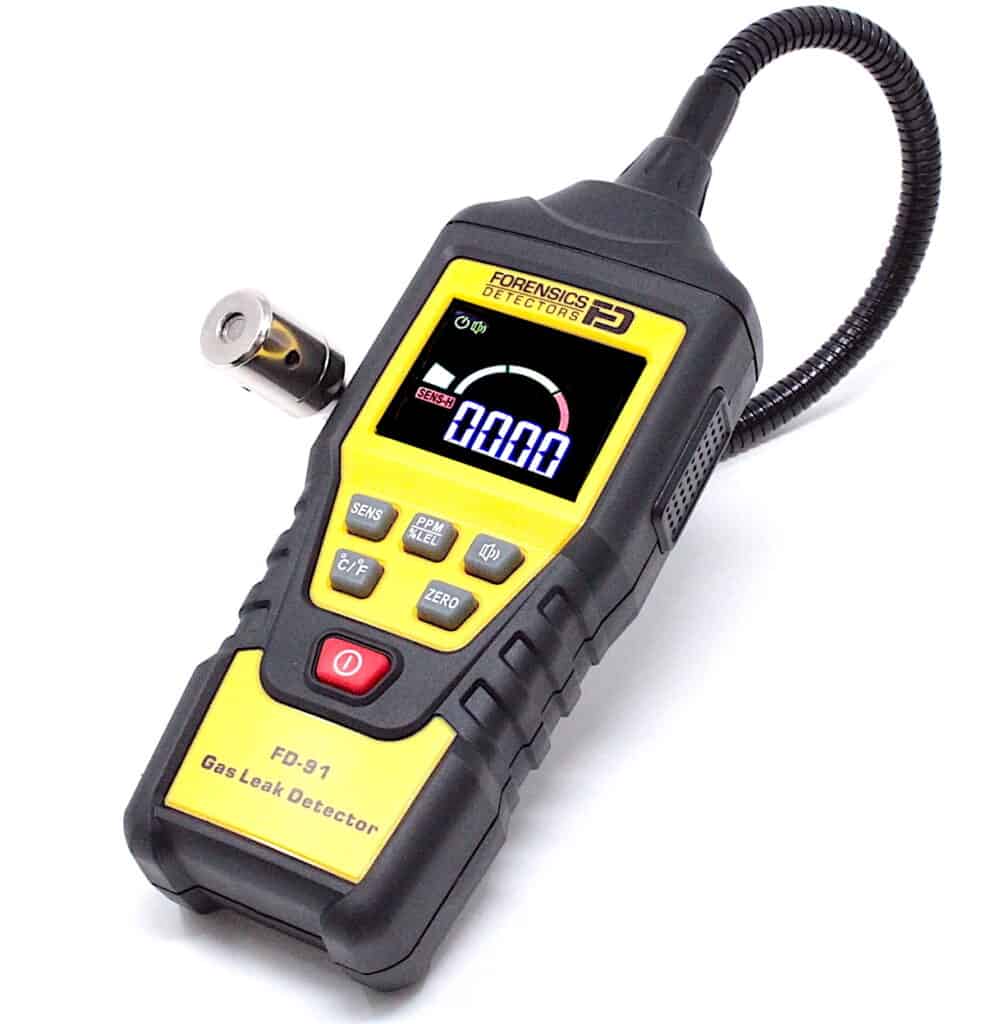
Slow Draining Fixtures
When it comes to identifying sewer gas leaks, one common sign to look out for is slow-draining fixtures. Slow-draining fixtures, such as sinks, showers, and toilets, can indicate a blockage in your plumbing system that is causing the sewer gas to back up into your home. Here are some factors to consider:
- Check all your fixtures: Slow draining can occur in sinks, showers, and toilets. If you notice that water is taking longer than usual to drain from any of these fixtures, it could be a sign of a sewer gas leak.
- Multiple fixtures affected: If you have multiple fixtures in your home experiencing slow draining at the same time, it is a stronger indication of a sewer gas leak. This suggests that the blockage is somewhere in the main plumbing line.
- Unpleasant odor: Along with slow draining, you may also notice a foul smell coming from the affected fixtures. Sewer gas has a distinct odor resembling rotten eggs, so if you detect this smell, it is important to investigate further.
- Gurgling sounds: You may hear gurgling sounds coming from the drains when water is running or being flushed. This can be another indication of a sewer gas leak and should not be ignored.
If you suspect a sewer gas leak due to slow-draining fixtures, it is crucial to take immediate action. Contact a professional plumber or maintenance engineer to inspect and repair the issue. Ignoring a sewer gas leak can lead to potential health hazards and damage to your home. Remember to prioritize safety and address the issue promptly.
Unexplained Wet Patches
When it comes to detecting sewer gas leaks, unexplained wet patches can be a clear sign that something is wrong. Here are a few things to consider if you notice unexplained wet patches in your home:
- Inspect the area: Take a closer look at the wet patches and try to identify the source of the water. Is it coming from a specific area or is it spreading across the floor?
- Check the pipes: Examine the pipes in the surrounding area for any signs of leaks or damage. Look for visible cracks, loose connections, or dripping water.
- Consider the location: Unexplained wet patches near the bathroom or kitchen could indicate a plumbing issue, while wet patches in the basement or near the sewer lines could be a sign of a sewer gas leak.
- Look for other signs: Pay attention to any accompanying signs such as foul smells, slow-draining fixtures, or hissing sounds. These can provide additional clues about the cause of the unexplained wet patches.
- Take action: If you suspect a sewer gas leak, it is important to act quickly. Contact a professional plumber or sewer gas leak detection service to investigate the issue and prevent further damage.
Unexplained wet patches in your home should not be ignored, as they can indicate a potential sewer gas leak. By being observant and taking prompt action, you can ensure the safety of your home and prevent any potential health hazards.
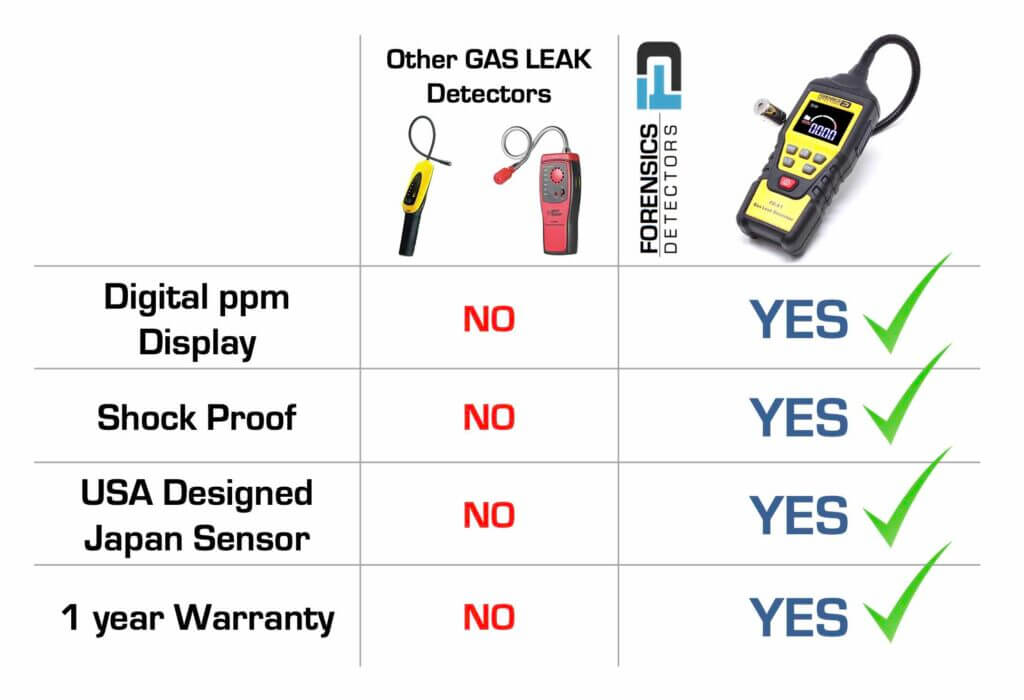
Sarah’s Sewer Gas Incident
Sarah noticed unexplained wet patches in her basement and became concerned about a potential sewer gas leak. She followed the steps mentioned above and discovered that a cracked sewer pipe was causing the issue. She contacted a professional plumber who repaired the pipe, eliminating the wet patches and preventing further damage to her home. Sarah’s quick action and attention to detail helped her resolve the problem and maintain a safe living environment.
Best Sewer Gas Leak Detector
When it comes to choosing the best sewer gas leak detector, there are several factors to consider. In this section, we’ll take a close look at the key factors that can make a difference in your decision-making process. From sensitivity to versatility and ease of use to durability, we’ll explore each sub-section to help you understand which features are essential for an effective sewer gas leak detector. So, let’s dive right in and discover what you need to know before making your final choice.
1. Sensitivity – Sewer Gas Leak Detector
- Range of detection: To ensure effective gas detection, it is recommended to choose a sewer gas leak detector with a wide range of sensitivity. Look for a detector that can detect even small amounts of gas, such as concentrations as low as 50 parts per million (PPM) or lower.
- Adjustable sensitivity: Having a detector that allows you to adjust the sensitivity level based on specific requirements is advantageous. This feature can help prevent false alarms and ensure accurate gas leak detection.
- Response time: Choose a detector with a fast response time, preferably within seconds. This ensures prompt detection of any gas leaks that may occur.
- Detection methods: Different detectors use various technologies to detect sewer gas leaks. The most affordable and most sensitive are semiconductor metal oxide sensors.
- Accuracy: It is essential to choose a detector that exhibits a high level of accuracy in detecting gas leaks.
2. Versatility – Sewer Gas Leak Detector
- Multiple detection capabilities: A versatile sewer gas leak detector should be able to detect a wide range of gases, including hydrogen sulfide, methane and ammonia.
- Various detection modes: Look for a detector that offers different sensitivity modes. A low sensitivity mode can help you pinpoint leaks in specific areas, while a high sensitivity mode can detect even the smallest traces of gas.
- Multiple applications: A versatile detector should be suitable for various settings, including residential homes, commercial buildings, and industrial facilities. It should be able to detect gas leaks in bathrooms, kitchens, gas lines, and other areas.
- User-friendly features: Consider detectors with features like a backlit digital display for easy reading, a loud alarm for immediate alerts, and a tapered square handle for comfortable grip during use.
- Durability: Choose a detector that is built to withstand harsh conditions and comes with a warranty for peace of mind.
By considering these factors, you can find a sewer gas leak detector with exceptional versatility that meets your needs and provides accurate and early warnings to protect against hazardous gases. Remember to follow safety precautions and regularly maintain your sewer systems to prevent gas leaks.
3. Ease of Use – Sewer Gas Leak Detector
- The gas leak detector should be user-friendly and easy to operate, ensuring ease of use.
- It should have clear and intuitive instructions for use, promoting ease of use.
- The detector should have a simple design with easy-to-identify buttons and controls, enhancing ease of use.
- It should have a clear and visible display that shows gas levels or alerts, contributing to ease of use.
- The detector should be lightweight and portable, allowing for easy handling and transportation, thus ensuring ease of use.
- It should have a long battery life or the option to be powered by a standard wall outlet, adding to ease of use.
- The detector should have a test button for regular checks and easy maintenance, simplifying ease of use.
- The user should be able to switch between different sensitivity modes for accurate detection in various situations, enhancing ease of use.
- It should have a loud alarm or notification system to alert the user in case of a gas leak, ensuring ease of use.
- The detector should come with safety precautions and guidelines for proper use, promoting ease of use.
4. Durability – Sewer Gas Leak Detector
| Durable Construction | It is crucial to choose a sewer gas leak detector that is constructed from sturdy materials like ABS plastic. This ensures that the detector can endure accidental drops or impacts during use. |
| Resistance to Water and Dust | It is important to find a detector that has a high level of water and dust resistance. This is particularly significant since sewer systems can be wet and dirty environments. A detector with a high IP (Ingress Protection) rating, such as IP65, provides good protection against water and dust and will not break the bank. |
| Battery | A durable detector should have a battery to ensure efficient operation for extended periods without the need for frequent battery replacements. |
| Rugged Design | It is recommended to choose a detector with a rugged design that can withstand tough conditions. Features like impact-resistant housing, reinforced buttons, and protective screens enhance its durability. |
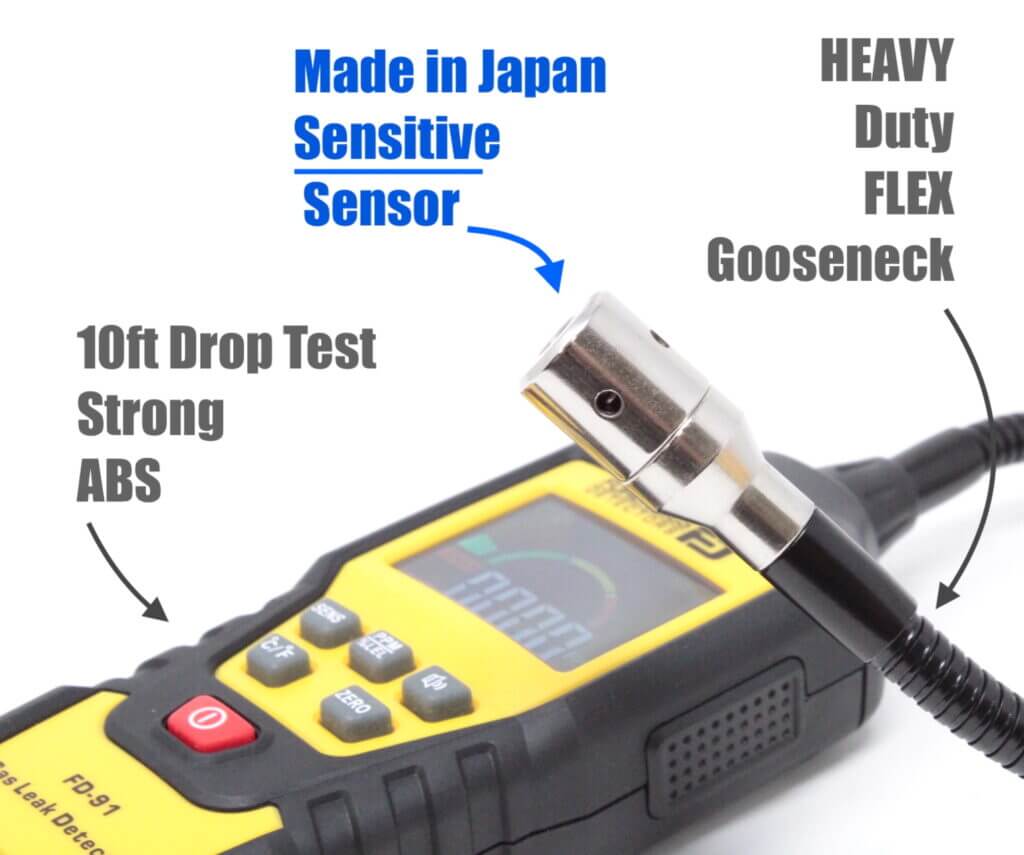
Tips for Locating Sewer Gas Leaks
When it comes to detecting and locating sewer gas leaks, there are several tips for detecting and locating sewer gas leaks that can help you in the process. Follow these tips for detecting and locating sewer gas leaks to effectively address the issue:
- Identify the odor: Sewer gas has a distinct and unpleasant odor resembling rotten eggs. If you notice this smell in your home or property, it could indicate a sewer gas leak.
- Check the drains: Start by checking all the drains in your home. Run water down each drain to ensure proper drainage. If there is a sewer gas leak, you may notice bubbling or gurgling sounds.
- Inspect the sewer line: One possible cause of a sewer gas leak is a cracked or damaged sewer line. Look for signs of damage, such as wet spots, mold, or unusual vegetation in your yard.
- Check for sewer gas in unused or hidden spaces: Sewer gas can accumulate in unused or hidden spaces, such as crawl spaces or basements. Use a handheld sewer gas detector to check these areas for any traces of gas.
- Inspect plumbing fixtures: Inspect all plumbing fixtures, including toilets, sinks, and shower drains. Make sure there are no loose connections or damaged seals that could be causing the sewer gas leak.
- Consider hiring a professional: If you are unable to locate the source of the sewer gas leak, it may be necessary to consult a professional plumber or a sewer gas leak detection specialist. They have the necessary equipment and expertise to identify and repair the issue.
Preventing Sewer Gas Leaks
Preventing sewer gas leaks is key to maintaining a safe and healthy environment. In this section, we’ll explore effective methods to keep sewer gas leaks at bay. From regular maintenance and proper ventilation to avoiding chemical build-up, we’ll uncover practical strategies that can help safeguard your home or workplace. No one wants to deal with the unpleasant odors and potential health risks associated with sewer gas leaks, so let’s dive into the essential techniques for prevention.
Regular Sewer Maintenance
Regular maintenance is essential to ensure the proper functioning and safety of your sewer system. Here are some steps to consider:
- Schedule regular inspections: Arrange for professional maintenance engineers to inspect your sewer system at least once a year. They can identify any potential issues and provide early warnings for gas leaks.
- Check for foul smells: Regularly sniff around your home’s drain openings and bathroom. If you detect a sewer gas smell, it may indicate a leak.
- Monitor slow-draining fixtures: If you notice that sinks, showers, or toilets are draining slowly, it could be a sign of a sewer gas leak. Don’t ignore this and address the issue promptly.
- Inspect for wet patches: Regularly check for unexplained wet patches on your walls, floors, or ceiling. These moisture spots may indicate a potential gas leak in your sewer system.
- Listen for hissing or gurgling sounds: Unusual noises, such as hissing or gurgling sounds coming from your plumbing, maybe a sign of a gas leak. Pay attention to any unusual sounds and investigate further.
Regular maintenance is vital to ensure the safety and functionality of your sewer system. By following these steps, you can prevent potential gas leaks and maintain the integrity of your sewer infrastructure.
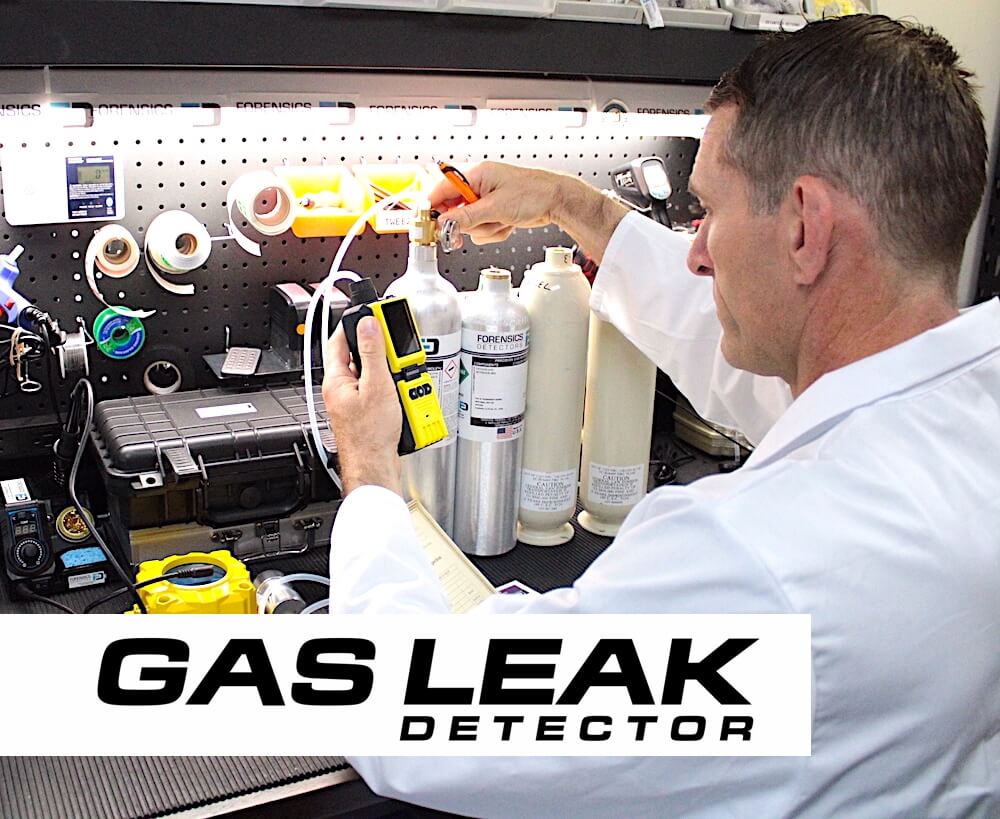
Proper Sewer Ventilation
Proper ventilation is essential when it comes to preventing sewer gas leaks and maintaining a safe environment. Sewer gas contains hazardous gases like hydrogen sulfide and methane, which can seriously impact human health if not properly ventilated. Here are some important points to consider regarding proper ventilation:
- Adequate airflow: It is crucial to ensure sufficient airflow in areas where sewer gas may accumulate, such as bathrooms and basements. Good airflow helps dissipate any gas present and reduces the risk of gas buildup.
- Ventilation systems: Installing and maintaining appropriate ventilation systems, such as exhaust fans or ventilation pipes, is important to remove potentially harmful gases from enclosed spaces. Regularly checking and ensuring their proper functioning is essential.
- Home drain openings: Keeping drain openings in your home covered with suitable traps or grates is vital. These barriers prevent sewer gases from entering your living spaces while still allowing for proper drainage.
- Avoiding blockages: Regularly cleaning and maintaining your plumbing system is necessary to prevent blockages that can cause sewer gas backup into your home. Blocked pipes can create pressure, increasing the risk of gas leaks.
- Safety precautions: It is crucial to be aware of any unusual odors that may indicate a sewer gas leak. If you notice a strong sewer odor or experience symptoms like headaches or nausea, evacuate the area immediately and contact a professional to assess and address the issue.
Prioritizing proper ventilation is of utmost importance as it significantly contributes to preventing sewer gas leaks and ensuring the safety and well-being of occupants. By implementing these measures, you can minimize the risks associated with sewer gas and create a healthier living environment.
According to the Environmental Protection Agency (EPA), exposure to high levels of hydrogen sulfide, a common component of sewer gas, can cause eye irritation, respiratory issues, and even loss of consciousness.
Does Lowes have Sewer Gas Detectors?
Yes.
Lowe’s sells gas leak detectors with the capability to detect a number of combustible gases that are found in sewer gas.
Does Home Depot Have Sewer Gas Detectors?
Yes, Home Depot sells combustible gas detectors that can detect sewer gases.
Conclusion
- Sewer odor detector, sewer gas leak detector, sewer gas detector of the home, or combustible gas leak detector for sewers are all alternative names for a sewer gas detector.
- Prolonged exposure to sewer gas can pose a serious health hazard and even lead to fatalities.
- Sewer gas detectors can help homeowners detect the presence of sewer gas if they detect a sulfur-like odor in their homes.
- Sewer gas leaks can be resolved by hiring a plumber who will locate and repair the leak, which is typically caused by aging, faulty, or deteriorating plumbing infrastructure.
The Author
Dr. Koz resides in the Palos Verdes Peninsula in Los Angeles, California. He is a subject matter expert on gas leak detectors, gas sensor technology, gas detectors, gas meters, and gas analyzers. He has been designing, building, manufacturing, and testing toxic gas detection systems for over 20 years. Every day is a blessing for Dr. Koz. He loves to help customers solve their unique problems.
Email: drkoz@gasleakdetector.com
Phone: +1 424-341-3886

